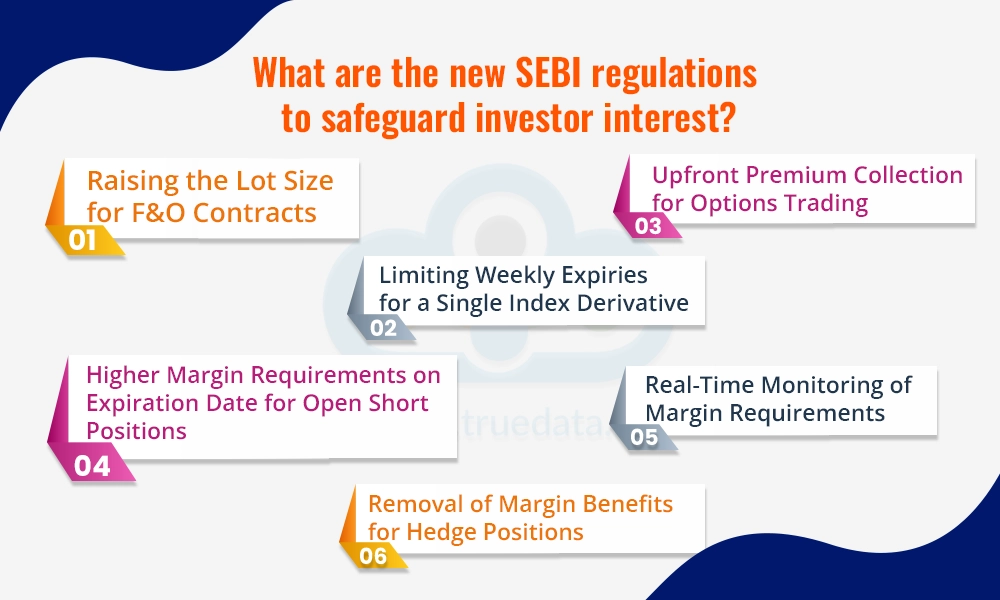
SEBIs primary mission has always been to protect investors while creating a secure platform for all market participants to explore investment opportunities. Thanks to SEBI’s efforts, Indian stock markets have seen tremendous growth, with record participation from retail investors. However, this rise in retail involvement is not without risks. Many new investors have dived into trading without a full understanding, leading to significant losses. Seeing this, SEBI has now sprung into action and implemented strict new measures aimed at protecting these investors. Here are all the changes introduced by SEBI and their impact on retail traders.
.webp)
Before we dive further into the abovementioned changes, let us focus on the need for these strong measures.
In the first eight months of 2024, over 32 million new Demat accounts were opened in India, pushing the total count past 17 crore. This growth, which now exceeds the populations of Russia, Mexico, and Japan, has largely been fueled by many factors like a flush of Initial Public Offering (IPOs). IPOs of big to small size companies have attracted retail investors with the potential for quick profits, and over 50 companies have collectively raised more than Rs. 53,419 crore by August 2024. The demand for IPOs has led to some dramatic instances, such as a small Rs. 12-crore IPO from a Delhi-based bike dealership being oversubscribed by Rs. 4,800 crore. However, alongside IPOs, many investors are also venturing into high-risk trading, especially in derivatives like Futures and Options (F&O), hoping to gain quick profits.
Unfortunately, this enthusiasm for trading has led to considerable losses for most retail investors. SEBI’s recent report revealed that in the fiscal year 2024 (FY24), around 91.1% of individual traders, totalling approximately 73 lakh people, incurred losses in the F&O segment, with an average loss of nearly Rs. 1,20,000 each. This trend is, however, not new as between FY22 and FY24, retail traders lost over Rs.1.81 lakh crore in the F&O segment, including transaction costs. In FY24 alone, retail traders saw losses of about Rs. 75,000 crore. Seeing these worrying numbers, SEBI has introduced new rules to help reduce these losses. These rules aim to protect retail investors from the high risks of complex trading and make the market safer for everyone.

Now that we have seen the need for modifications in the existing rules, let us focus on the revised rules proposed and introduced by SEBI.
The F&O trading segment has seen a tremendous jump and India is now a leading market in this segment. However, a huge magnitude of traders have seen significant losses prompting the regulator to take measures to curb retail participation in F&O trading. The increase in the F&O lot size will now jump from the previous value of Rs. 5,00,000 to between Rs. 15,00,000 and Rs. 20,00,000. This adjustment, which takes effect on November 20, 2024, is intended to discourage small, individual traders with limited funds from participating in this high-risk segment. With a larger minimum capital requirement, this move aims to prevent smaller investors from taking on potentially overwhelming risks in the derivatives market.
SEBI’s new guidelines will further restrict stock exchanges from offering weekly expiring derivatives contracts on their multiple indices. The revised rules will now allow stock exchanges to offer weekly expiry contracts on only one of their main benchmark indices. This measure will be effective from November 20, 2024. This change aims to reduce the frequency of high-risk trading opportunities in weekly contracts, as it is expected to decrease trading volumes and speculative activity. The intention is that with fewer options for quick gains, traders may approach index derivatives with a more cautious and long-term perspective.
SEBI has further mandated that starting from February 1, 2025, brokers must collect the full options premium upfront when an order is placed, rather than allowing it to be paid later. By requiring traders to pay the premium cost at the start, SEBI intends to reduce the chances of individuals trading on borrowed money or ‘leverage’. This measure should help control risk, as upfront premium collection ensures traders are fully invested in the trade from the beginning.
SEBI will now apply an additional ‘Extreme Loss Margin’ (ELM) of 2% to all open short positions on the expiration date of contracts to shield traders from sudden market swings. This new requirement is designed to provide an added layer of protection for traders by helping to manage unexpected losses that can arise from high volatility in the market, especially as contracts near their expiry.
SEBI is also tightening its oversight on intraday trading positions by requiring brokerages to monitor and check open positions multiple times during the trading day. Earlier, these position limits were only verified at the day’s end, which allowed traders to sometimes exceed risk limits during trading hours. With this real-time check, SEBI aims to prevent traders from holding excessive positions that could lead to outsized losses, ensuring a safer trading environment.
Previously, traders who held both buy and sell positions across different expiries received a margin benefit. This benefit was offered to reduce the margin requirement used in margin trading since both positions could potentially offset each other. However, under the new guidelines, SEBI has removed this margin reduction, which will likely result in fewer trades. SEBI is thus aiming to make traders more cautious by removing this cost-saving feature and reducing overly speculative hedging practices.
These new regulations by SEBI aim to make trading safer for retail investors by limiting high-risk activities and reducing the potential for heavy losses. With a stricter approach towards speculative and derivative trading, SEBI is encouraging traders to approach the market more cautiously and to prioritise long-term, sustainable strategies over short-term trading. Through these measures, SEBI hopes to protect small investors and create a more balanced, secure trading environment in India’s stock markets.
These revolutionary steps taken by SEBI have created huge shockwaves in the stock markets but are important for the safety of small investors and traders in the long run. What do you think of SEBI’s measures and how have they impacted you? Let us know your thoughts and reach out to us if you need more clarification on this topic.
Till then Happy Reading!
Read More: SEBI Norms on Sharing Real-Time Price Data

It was October 2022 when the stock markets started tightening the noose around s...

The stock market in India has fascinated general Indian masses for long, perhap...

After the buzz around the general elections in India had just concluded, the sta...